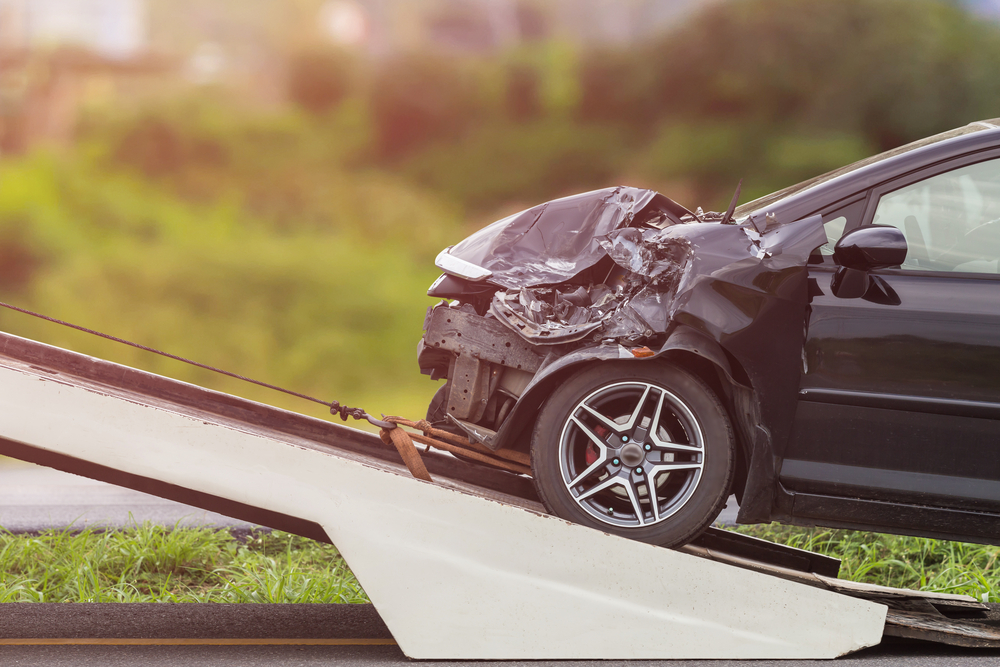
Should You Drop Collision Coverage?
Wednesday, September 26, 2018
The short answer is “no.” However, the truth is, it really depends on you, your situation, and the vehicle you are covering. Collision coverage on your car insurance help pay for damage to your vehicle should you be involved in an accident that is either your fault; a hit and run; the result of an uninsured motorist; or the result of an act of God (such as a tree falling on your car when it is parked). When you are making payments on your vehicle through a loan company or if you are leasing your vehicle, you must carry collision as part of the contracted terms of the loan or lease. However, once your car is paid in full, you have the option to carry full coverage, inclusive of collision, or to cancel the collision coverage and simply carry liability coverage. This is when this question comes into play.
The Vehicle
The first question you should ask when deciding to drop collision coverage is what type of vehicle am I covering? You may believe that every vehicle is the same and should be covered the same by the insurance industry. However, that could not be further from the truth. The type of vehicle, the age of the vehicle, and the value of the vehicle are all key determining factors where insurance is considered.
First, the value of the vehicle is probably the most important factor in deciding to keep collision coverage. Value is more than just how much the vehicle can earn on the open market. The value is also how much you depend on the vehicle to help you function in the world. The value on the open market will determine the cost of collision coverage. However, the vehicles personal value may determine the value of maintaining collision coverage.
A beater truck may be only worth a few hundred dollars. It may be easy to replace and therefore not worth the paper a collision policy is printed on. However, if it is your only means of transportation and you would lose your job without it, you may want to consider maintaining full coverage on the truck.
In contrast, a high-end sports car is valued at tens of thousands to hundreds of thousands of dollars. Once you own the vehicle without payments owed to any bank, the value of the vehicle is still high. Therefore, collision coverage would be a must-have for this type of vehicle.
Finally, a classic car has a high value both on the open market and to the collector as a valuable heirloom. Since these vehicles are expensive to maintain and repair, collision coverage can help mitigate damages and are truly a must-have for these types of vehicles as well.
The Driver
The other large piece of the equation in deciding whether to keep collision coverage is the driver associated with the vehicle. To put this into perspective, a seasoned driver who is in their 30’s to 40’s with little to no health problems will likely be a much more cautious driver. This driver can still experience uninsured motorist accidents, hit and runs, and acts of God. However, he or she will be less likely to cause an accident. In addition, this person may be able and willing to take the saved premium dollars and invest the money, to provide a cushion should an issue occur that would have been helped with collision coverage.
In contrast, a new driver is not a seasoned driver. These drivers have a higher chance of causing an accident, even if the accident is simply crashing into the curb. While the accident may be minor, the damage can still cost several hundred to several thousand dollars. In addition, many times, these young drivers do not have the foresight to stash away the saved premium or need that money for other expenses. These drivers are great candidates for maintaining collision coverage when possible.
Finances
Every financial decision involves the discussion of finances. However, when choosing to keep or discard collision coverage, this conversation should be different than other financial conversations. This conversation should not be whether you can afford to keep collision coverage. It should be whether you can afford to get rid of it. If you have enough savings to cover damages to a vehicle at any cost, or you can easily afford to go out and buy another car on a whim, then you do not necessarily need to keep collision coverage. However, if either of those descriptions does not describe you, then you cannot afford to get rid of your collision coverage.
To learn more about collision coverage for your vehicle, contact our team at Protective Agency or call (877) 739-9367. Our licensed insurance agents will be happy to answer any questions you have.
